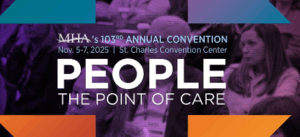October 21, 2025

Webinar: From Shortages to Strength: How 4 Health Systems are Modernizing Procurement, October 27
Supply chain breakdowns are resulting in canceled surgeries across the nation. Product shortages are not just a logistics problem — they’re a care delivery problem.
Join supply chain executives from Tampa General Hospital, Cone Health and Wellstar Health System as they share how procurement modernization is helping them stabilize operations, manage budget pressures and strengthen workforce support heading into 2026.
This session will spotlight lessons learned from real-world transformations and provide practical guidance on what to prioritize next.
Key takeaways:
- Strategies to reduce procurement friction while addressing staffing trade-offs
- How technology partnerships are enabling resiliency and stable pricing
- Procurement metrics that connect supply chain performance to front-line care
Cost: Free
When: Monday, October 27, 1:00 p.m. – 2:00 p.m.
Click Here to Register



